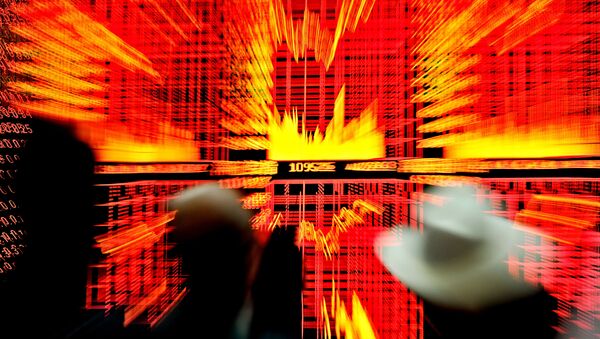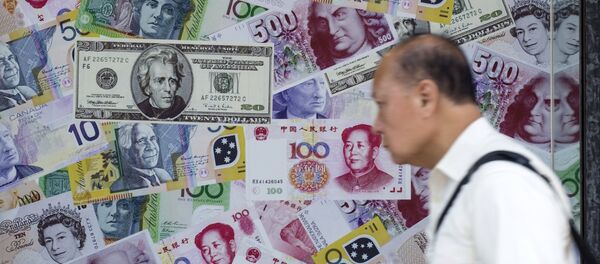In July, mainland China's stock markets saw a flight of traders with more than 10 mln renminbi ($1.6 mln) at their disposal in the form of equity assets. Some 28% of these investors opted to withdraw, while the amount of traders with less than 100,000 renminbi rose by 8%, according to a recent statement made by the nation's market watchdog.
Mainland China's richest might have capitalized on the government-sponsored stock purchases that Beijing undertook as part of their effort to stop market rout in June and in early July. Chinese equity markets set their record highest in June, having slumped 36% since, while the governmental share purchases yielded multi-billion profits to those selling at exactly the right time (prior to the Beijing-imposed de-facto ban to sell).
The amount of traders with 1 to 10 mln renminbi on their accounts shrank by 23%, the number of investors with 100,000 rmb to 1 mln rmb dropped by 9%.
On Tuesday, the Shanghai Composite Index plummeted 6.1% to 3,749.12 points in the biggest one-day drop since 27 July. Concerns are growing of institutional investors (like companies) pulling their money out of the mainland, while the government in Beijing might soon start ending its support for the stock market and the nation's financials in general as it finds itself under extreme pressure of the immense debt burden, amounting to some 280% of Chinese GDP. The real economy is staggering, yielding little to no support to the markets, and while a cheaper renminbi will significantly improve China's export revenues and is likely to improve — to a certain extent — the manufacturing situation, the long-term trend for the mainland is downward.
The pessimism of the mainland's economy stems from the fact that Beijing's aspiration to remodel the nation's growth in such a manner that it would be driven by domestic consumption, first revealed in 2013, is all but over now. The momentum for the necessary structural reform is gone for two reasons. First, the rapid growth of the real estate market in 2013-2014, stirred false hopes in mainland China that it would be able to accelerate its economy without a major economic reform. Any reform project is perceived in Beijing as potentially destabilizing the nation's politics and the Communist Party's political monopoly. Second, the significant gains in the Chinese stock markets in 2014-2015 produced another round of false hopes of financializing the economy, similar to that of the US, so that the financial sector would make up for the losses in industrial and trading competitiveness.
Meanwhile, as most of the mainland's bourses are slumping, Shenzhen has become an unlikely bright spot in China's investment activity. After many of the richest Chinese investors cashed out of the stock market, some of them resurfaced — along with their swollen fortunes — in the housing market. In Shenzhen, new home prices skyrocketed by an annualized 24%, compared to that of 2% in Shanghai and 4% in Beijing. Foreign investment, while shrinking elsewhere in China, added an annualized 27% in Shenzhen in June.
Shenzhen is one of the China's last profitable opportunities, corresponding to a typical business scheme of the past 25 years, where excessive influx of investment drives the prices sky-high, and then a selloff sees the biggest players capitalizing on the losses of other market participants. That said, an imminent burst of the ‘Shenzhen bubble' will close the chapter on the mainland's ‘tame capitalism' of the past several decades, with China moving on after having conducted the long-overdue structural reform.





